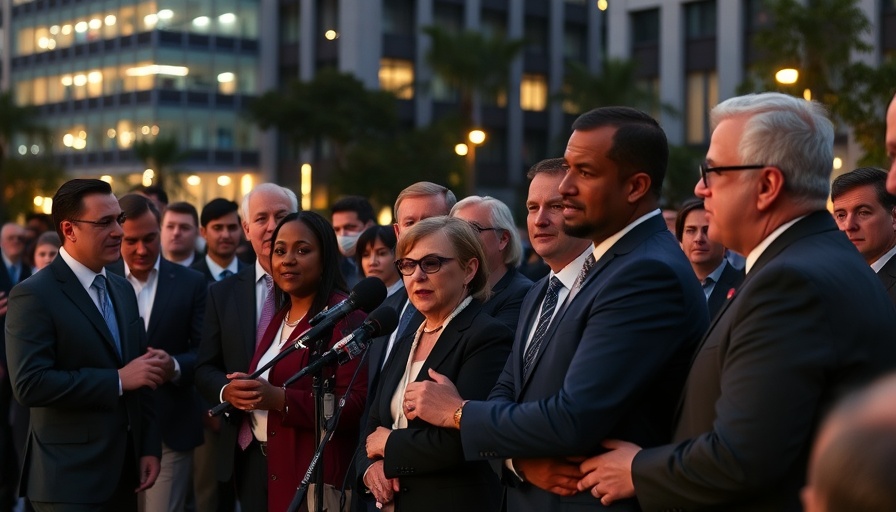
A New Era in South Korea: Lee Jae-myung's Vision for Economic Revival
On June 3, 2025, South Korea welcomed its new president, Lee Jae-myung, who was elected amidst significant political upheaval. Taking office after a dramatic electoral process, Lee aims to revitalize a struggling economy and address the psychological wounds inflicted by a recent martial law crisis. This shift in leadership is not just significant for South Korea; it could impact the entire Asian region, particularly as economic policies and international relations redefine the landscape.
Overcoming the Shadows of Martial Law
The aftermath of the botched military attempts under the previous president, Yoon Suk Yeol, left South Korea divided and unsettled. Lee campaigned on a platform promising to heal these deep-seated national wounds. With close to 50% of votes cast in his favor — the highest voter turnout since 1997 — Lee's presidency signifies a vocal rejection of past authoritarian moves. His supporters believe that addressing the psychological impact of recent history will enable a more resilient South Korean economy.
Navigating Economic Challenges: A Look Ahead
As Lee aims to push through economic reforms, he will face a platter of challenges that have plagued previous administrations. South Korea's economy is grappling with sluggish growth rates and rising global protectionism, particularly from its largest trade partner, the United States. Lee must devise comprehensive investment strategies to combat these challenges, focusing on sectors like technology and healthcare, which are primed for growth and innovation.
Investment Strategies for a Brighter Future
Amidst Lee's ambitious economic revival vision, investors may find new opportunities in South Korea's evolving market landscape. Investment strategies, including diversifying portfolios with real estate, dividend stocks, and mutual funds, will become essential as the country stabilizes. The emphasis on future technologies and green investments offer potential for high returns while promoting sustainable practices.
The Role of International Allies
Given the significant economic interdependencies, Lee’s administration will need to maintain robust relationships with international allies, particularly in handling trade negotiations and ensuring economic security. An increasing awareness of global markets will be crucial, as South Korea works to position itself both regionally and globally.
Real Estate Investing: A Safe Haven?
For many South Koreans, real estate remains a preferred investment choice. In light of uncertainties in global stock markets, the demand for residential properties continues to remain strong despite rising prices. Understanding the trends in real estate investment trusts (REITs) and other real estate financing models will be beneficial for potential investors looking to navigate these turbulent times effectively.
Long-term Trends: Lessons Learned
As South Korea embarks on this new journey under Lee’s leadership, one must look at the long-term trends that have shaped the economy. The focus on investing in education, technology, and entrepreneurship will be paramount. Past mistakes need to be turned into valuable lessons; embracing a culture of innovation and resilience will be crucial for sustainable economic progress.
The Community Connection: Why This Matters
Lee's plans are more than just economic babble; they resonate deeply with the everyday citizen looking for stability and growth. As the nation recovers from political strife, it is essential for the South Korean populace to feel included in this economic revival. Community-driven initiatives and local business support could lead to a more sustainable and inclusive development model.
In conclusion, Lee Jae-myung's presidency offers hope for a revitalized South Korean economy poised to confront challenges head-on. Understanding the intertwining of politics with economic strategy will be vital for both citizens and investors alike. As this pivotal moment unfolds, all eyes will remain on South Korea's adaptation within a changing geopolitical environment.
 Add Row
Add Row  Add
Add 



Write A Comment